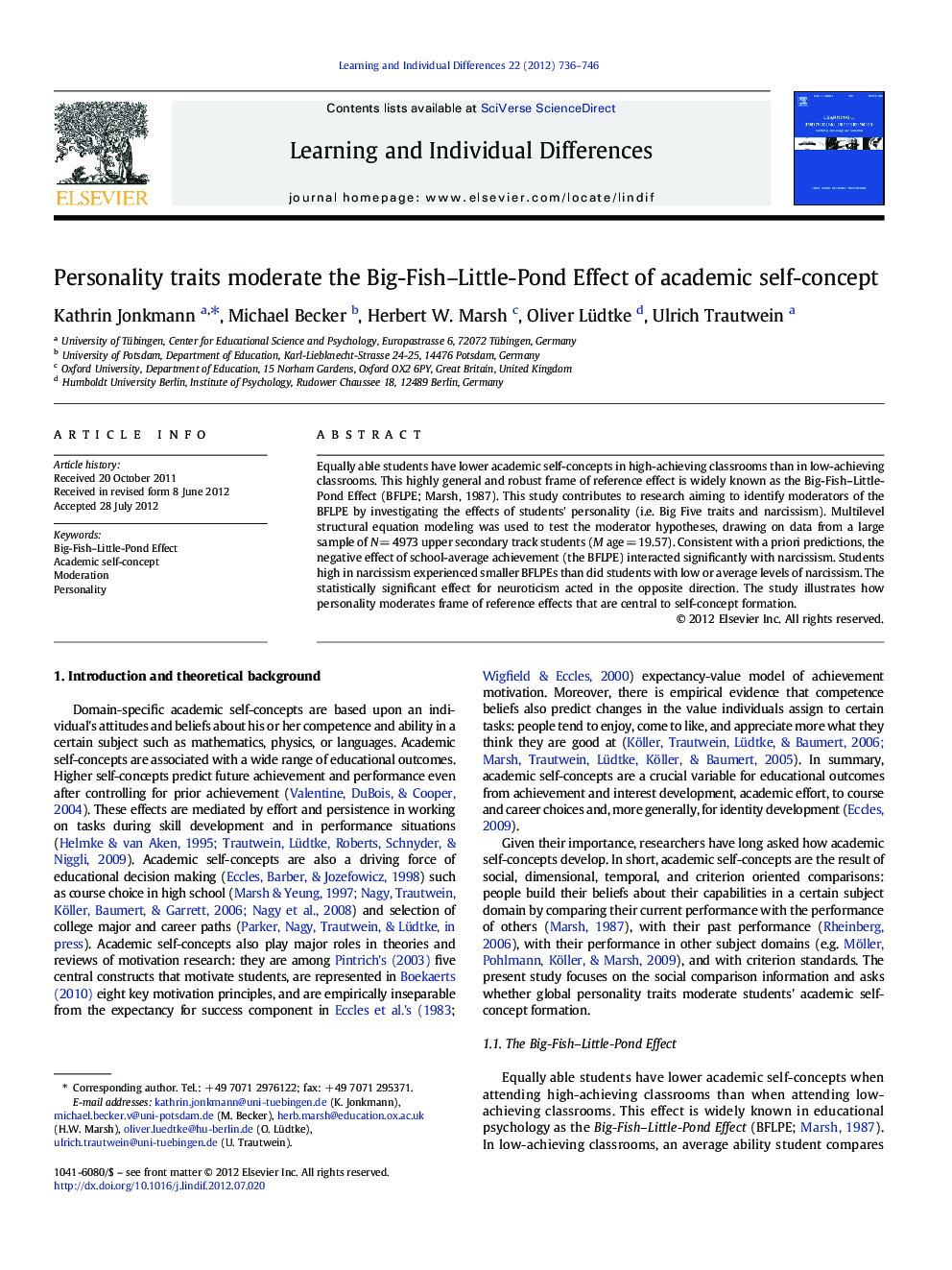| کد مقاله | کد نشریه | سال انتشار | مقاله انگلیسی | نسخه تمام متن |
|---|---|---|---|---|
| 364856 | 621095 | 2012 | 11 صفحه PDF | دانلود رایگان |

Equally able students have lower academic self-concepts in high-achieving classrooms than in low-achieving classrooms. This highly general and robust frame of reference effect is widely known as the Big-Fish–Little-Pond Effect (BFLPE; Marsh, 1987). This study contributes to research aiming to identify moderators of the BFLPE by investigating the effects of students' personality (i.e. Big Five traits and narcissism). Multilevel structural equation modeling was used to test the moderator hypotheses, drawing on data from a large sample of N = 4973 upper secondary track students (M age = 19.57). Consistent with a priori predictions, the negative effect of school-average achievement (the BFLPE) interacted significantly with narcissism. Students high in narcissism experienced smaller BFLPEs than did students with low or average levels of narcissism. The statistically significant effect for neuroticism acted in the opposite direction. The study illustrates how personality moderates frame of reference effects that are central to self-concept formation.
► Certain personality traits moderate the Big-Fish–Little-Pond Effect on self-concept.
► The negative effect of school achievement interacts with narcissism and neuroticism.
► Students with high narcissism experience smaller BFLPEs than other students.
► The effect for neuroticism acts in the opposite direction.
► Students high in neuroticism experience stronger BFLPEs than emotionally stable students.
Journal: Learning and Individual Differences - Volume 22, Issue 6, December 2012, Pages 736–746